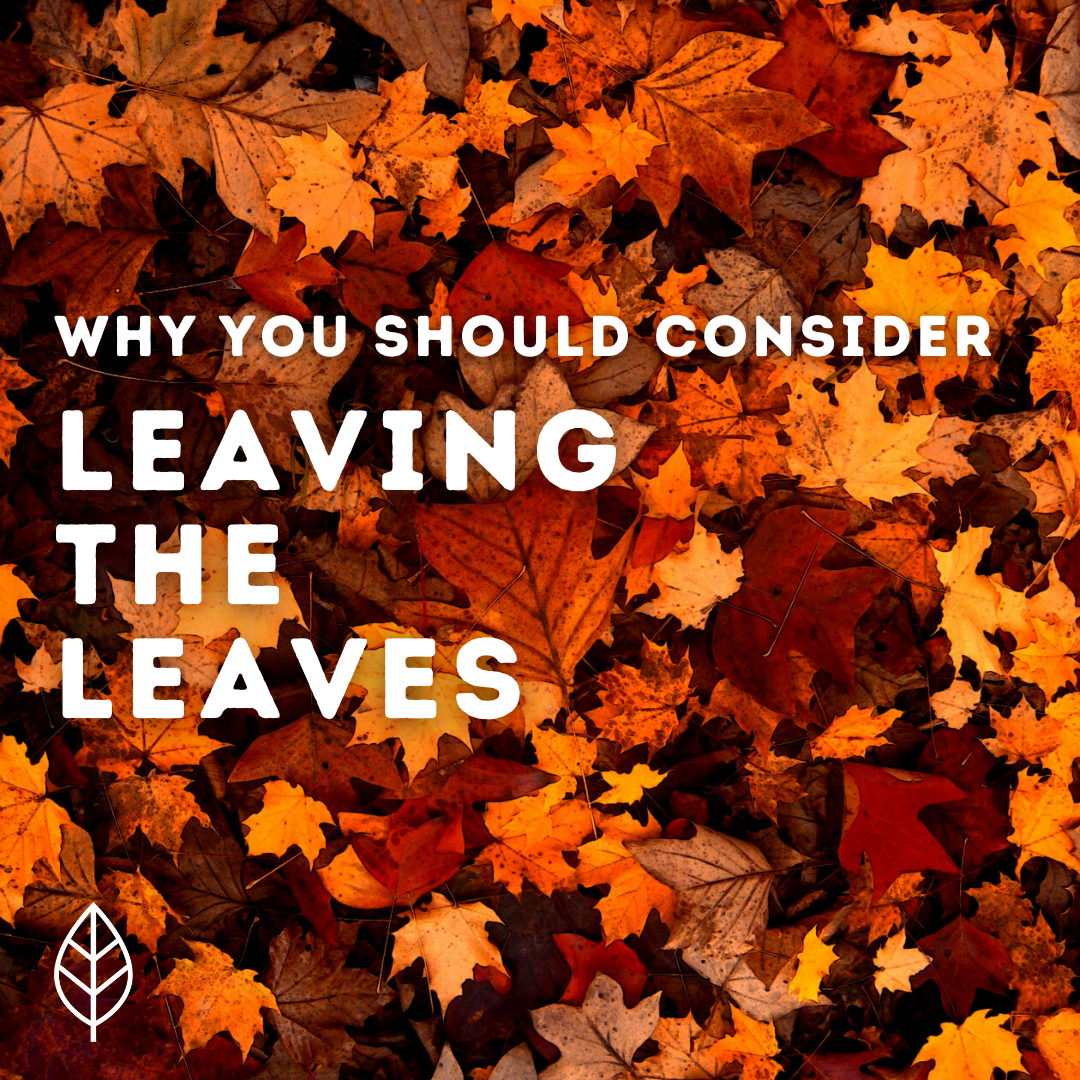NEWS
Why You Should Consider “Leaving the Leaves”

Update: You actually do not need to remove all the leaves in your lawn this fall. In fact, “leaving the leaves” protects and fertilizes your lawn, provides shelter to insects and other critters, and helps decrease the amount of organic waste that ends up in landfills (and contributes to greenhouse gas emissions).
Here’s why experts say you should consider “leaving the leaves”:
Protect and Fertilize Your Lawn & Garden
Leaving at least some of the leaves in your yard can help fertilize your grass and other plants. David Mizejewski, a naturalist at the National Wildlife Federation, explained that leaves “fall around the root zone of these plants, where they do things like suppress weeds or other plants from growing that would otherwise compete with the trees and the shrubs,” he said. “They slowly break down and compost right there at the base of the tree/shrub, right above its root zone, where they return nutrients that the plant can then recycle and reuse next spring.”
Not only do leaves suppress weeds, but they help retain moisture and build healthy soil in your garden beds throughout the winter and early spring.
Provide Shelter Insects & Other Critters
Butterflies, bees, moths, spiders, toads, salamanders and other critters rely on fallen leaves for cover and to insulate them from the elements; they use them for laying eggs, provisioning nests, and as a food source. Leaving the leaves will ensure that when spring rolls around, we have plenty of insects to pollinate our plants and to provide food for birds and other insectivores. With the population of many insects, particularly bees, decreasing, it is more important than ever to help protect these important members of our ecosystem.
Reduce Greenhouse Gas
In 2018, the EPA estimated that yard trimmings, including fallen leaves, represented 12.1% of municipal solid waste, with roughly 13 million tons of natural waste being incinerated or dumped into a landfill each year. Leaves and other organic matter sent to landfills break down to form methane, a greenhouse gas that contributes to climate change.
Options for How to Leave the Leaves
Whether you landscape your lawn or outsource these services to a landscaping company, you have several options on how you “leave the leaves”:
- Mulch Them: Instead of raking or blowing leaves, use a mulching lawn mower to reduce them to shreds. Chopping the leaves up into small pieces will still provide the same benefits of leaving them whole.
- To the Woods! If you own woods or fields surrounding your home, use your electric/battery powered leaf blower to move leaves into those natural areas where they can decompose naturally.
- Rearrange Them: Use your rake or electric/battery powered leaf blower to create piles around trees, shrubs, and garden beds.
- Compost! Westport offers a free Yard Waste Facility where you can drop off yard waste to be composted. If you have an at-home composting system, you can also compost your leaves directly.